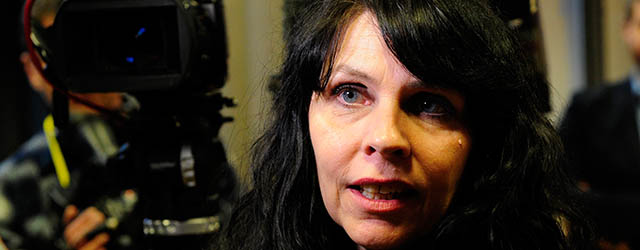The Panama Papers’ revelation that Iceland’s prime minister had offshore interests, including claims on Icelandic banks, caused outrage in this naturally volcanic island state.

Protestors threw eggs, yogurt and fishheads at the parliament building in Reykjavik. As prime minister Sigmundur David Gunnlaugsson became the first government leader worldwide to resign over the financial scandal, a hitherto fringe political grouping known as the Pirate Party surged to 40% approval in the polls.
Who are these Pirates?
They hold just three seats in Iceland’s parliament, the 63-seat Althing. Party co-founder Birgitta Jónsdóttir is currently their main spokesperson, but the chairmanship of the party rotates annually between the three. They generally espouse principles rather than policies: They favor direct democracy, ultraliberal copyright laws, decriminalizing drugs and granting citizenship to US intelligence whistleblower Edward Snowden.
Their approval ratings have settled a bit as Iceland prepares for its presidential election on June 25, when one of the establishment candidates is likely to win. But, says Iceland-watcher Scott MacDonald, chief economist at Smith’s Research & Gradings, “The Pirate Party will form an important part of any future left-wing coalition.”
The banking collapse of 2008—2009 paved the way for the Pirates, says Ásgeir Jónsonn, dean of the faculty of economics at the University of Iceland. “It was a shock to the national psyche. Trust in the mainframe of society, the government, parliament, the currency, the banks, took a severe blow.”
Jónsonn also points out that Iceland is a youthful society with one of the highest birthrates in Europe. “A lot of young people are anti the established political system and want something new,” he says. “It’s like Podemos in Spain, the Italian Five Star Movement or even Donald Trump—they see them as underdogs, they see them as clean.”
The Pirates’ members of parliament often express their distaste for actually wielding political power. MacDonald believes the current coalition government will delay holding a general election for as long as possible in the hope that Icelanders’ anger will abate, and with it support for populist parties. “The Pirate Party doesn’t offer solutions,” says Jónsonn. “That is the hallmark of today’s populist parties, wherever they are.”



